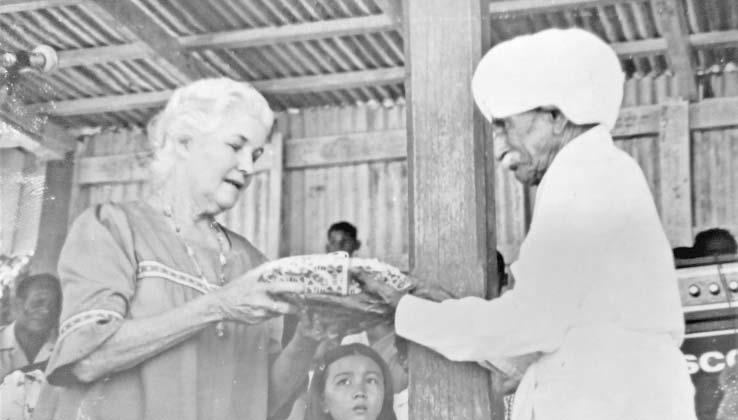In February 1915, a group of young, carefree and adventurous boys left their village Govindpur in the district of Rai Bareli in Uttar Pradesh in search of work.
Times were hard during those days and the young men were anxious to find a source of livelihood for them so they could support their families.
The group was approached by a local recruiter who promised them good remuneration.
They were taken to Salon where they were registered and transported to Calcutta and finally boarded the ship SS Mutlah 1.
The ship left Calcutta wharf on May 7, 1915, with 852 passengers (girmitiya) on board.
Among them, was an 18-year-old young man named Ram Dayal Nakched who had so many dreams for his family.
His grandson Satish Narayan Nakched, a lecturer at the Fiji National University, said his grandfather Mr Nakched arrived in Fiji as an indentured labourer on May 7, 1915.
“He was from Uttar Pradesh, a district of Rai Bareli and the village of Govindpur.
His caste was Ahir and the whole family was involved in the dairy business together with his elder brother Ram Nath Nakched,” he said.
“Times were hard then, especially in the summer months due to inadequate grazing pasture and the other source of livelihood was subsistence farming.
“The group of young, carefree, and adventurous boys who were around 19 years of age, registered for emigration at Salon in February 1915 and transported to Calcutta and they finally boarded the ship from depot number 52 as labourers. My grandfather was numbered 56356. They left the depot on the 3rd of April the same year.
“Their journey took about a month, and it was the first time for them to see the ocean and many fell sick.
“My grandfather told us that the medical superintendent on the ship worked overtime to see that everyone was well. Sitting in the cramped ship as there were more than eight hundred as well often created disputes and fighting amongst the men and to eliminate such disputes, they were given two little rocks and were instructed to rub them together to pass time.
“He told us that the ship journey began to disintegrate the very strong caste system where mingling and sharing became a common occurrence — something that was strictly forbidden in the mainland.
“When they were on the ship, the reality hit them hard, and many wanted to return to India and cried a lot.
“But this also created new friendship bond and later on in Fiji one of the close ship mates of my grandfather and him married girls from the same family and that relationship still exists to today.”
- Tomorrow, read about how events unfolded when the ship arrived in Fiji and the passengers were kept on Nukulau Island.



